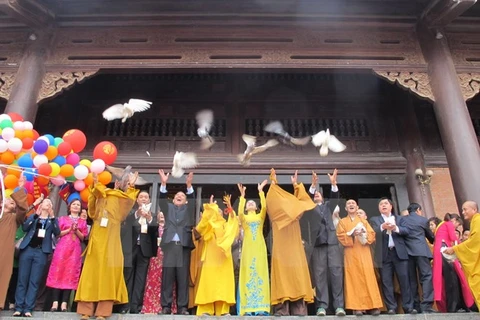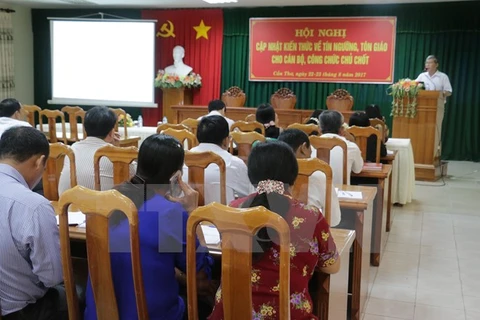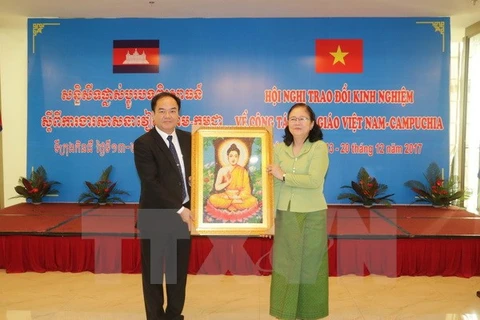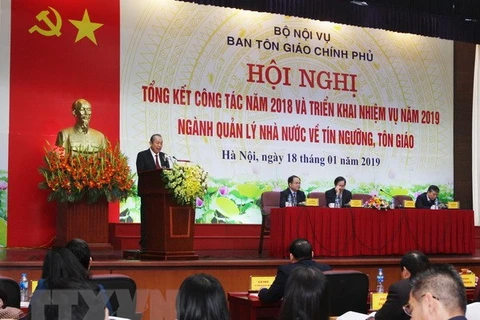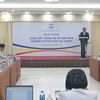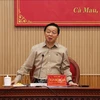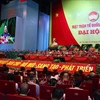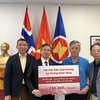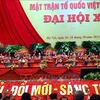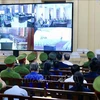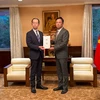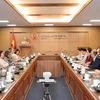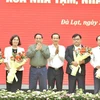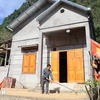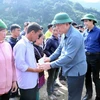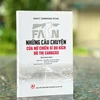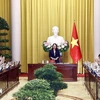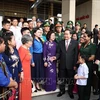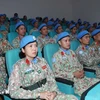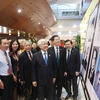Hanoi (VNA) - The standing board of the Vietnam Fatherland Front (VFF) Central Committee convened a meeting in Hanoi on July 6 to review its religious work in the first half of this year.
Chairing the meeting, Vice President of the VFF Central Committee Ngo Sach Thuc asked participants to suggest measures to further strengthen religious work at the grassroots level and unite religions for stability and development.
Deputy head of the VFF Central Committee’s religious affairs board Nguyen Ngoc Quynh said a majority of religious followers highly value the Party and State’s drastic, effective, and humanitarian policies and guidelines in the fight against COVID-19 as well as during the economic recovery period in the “new normal”.
All 43 religious organisations actively combated the pandemic with various activities, including cancelling or suspending festivals, sermons and gatherings, and offering donations in cash and kind worth hundreds of billions of VND, contributing to preventing the epidemic from spreading nationwide.
Describing the religious community as an important and indispensable part of great national unity, Quynh said their abundant resources should be effectively tapped for national construction and development.
The VFF Central Committee’s standing board issued five guideline documents and urged religious organisations to join the fight against COVID-19, he went on, use more advanced technologies to direct religious work, and oversee the implementation of support policies for those hit by COVID-19, contributing to successfully realising the Resolution adopted by the ninth congress of the VFF during the 2019-2024 tenure.
Concluding the meeting, Thuc acknowledged that religions have joined more social activities amid the globalisation era and Industry 4.0.
In such a context, he suggested that Vietnam soon complete policies and mechanisms to build a law-governed State, spread effective religious models, and uphold the role of the contingent of key officers and prestigious persons in residential areas and religious organisations.
Participants at the meeting also spoke highly of collaboration between the VFF Central Committee, its chapters, and agencies relating to religious work./.
Chairing the meeting, Vice President of the VFF Central Committee Ngo Sach Thuc asked participants to suggest measures to further strengthen religious work at the grassroots level and unite religions for stability and development.
Deputy head of the VFF Central Committee’s religious affairs board Nguyen Ngoc Quynh said a majority of religious followers highly value the Party and State’s drastic, effective, and humanitarian policies and guidelines in the fight against COVID-19 as well as during the economic recovery period in the “new normal”.
All 43 religious organisations actively combated the pandemic with various activities, including cancelling or suspending festivals, sermons and gatherings, and offering donations in cash and kind worth hundreds of billions of VND, contributing to preventing the epidemic from spreading nationwide.
Describing the religious community as an important and indispensable part of great national unity, Quynh said their abundant resources should be effectively tapped for national construction and development.
The VFF Central Committee’s standing board issued five guideline documents and urged religious organisations to join the fight against COVID-19, he went on, use more advanced technologies to direct religious work, and oversee the implementation of support policies for those hit by COVID-19, contributing to successfully realising the Resolution adopted by the ninth congress of the VFF during the 2019-2024 tenure.
Concluding the meeting, Thuc acknowledged that religions have joined more social activities amid the globalisation era and Industry 4.0.
In such a context, he suggested that Vietnam soon complete policies and mechanisms to build a law-governed State, spread effective religious models, and uphold the role of the contingent of key officers and prestigious persons in residential areas and religious organisations.
Participants at the meeting also spoke highly of collaboration between the VFF Central Committee, its chapters, and agencies relating to religious work./.
VNA

